Genetrace DNA Alzheimer’s Disease Test
$194.99$215.99
This DNA test detects the APOE variant associated with an increased lifetime risk of developing late-onset Alzheimer’s disease
Alleles Tested:
- APOE e2
- APOE e3
- APOE e4
Collection Method: Buccal (Cheek) Swab
Product Description
 |
   |
   |
   |
How It Works
| STEP 1: Purchase Your Kit | STEP 2: Collect DNA Samples | STEP 3: Mail Samples to Lab | STEP 4: Receive Your Results |
|---|---|---|---|
Your kit will be delivered to your doorstep within days with free nationwide shipping. |
Collect painless mouth swab samples at home with the included materials. |
Mail the samples to the lab using the prepaid shipping envelope. |
Get your results online within 1-2 business days after testing begins. |
Find out if you are at increased risk of Alzheimer’s disease
Alzheimer’s disease is a progressive brain disorder characterized initially by memory loss and later by the loss of thinking, reasoning and behavioural abilities. There are both early-onset and late-onset forms of Alzheimer’s disease. The late-onset form occurs in 90% of Alzheimer’s disease cases and the first symptoms generally appear after 65 years of age.
The APOE gene is the biggest genetic risk factor linked to the late-onset form of Alzheimer’s disease. This Alzheimer’s Disease APOE DNA test will determine whether you carry the APOE e4 allele which is associated with an increased lifetime risk of developing late-onset Alzheimer’s disease.
About the Alzheimer’s Disease APOE DNA Test
The APOE gene is the biggest genetic risk factor linked to the late-onset form of Alzheimer’s disease. The late-onset Alzheimer’s disease APOE genetic test detects which APOE alleles you had inherited from your parents. These alleles indicate whether an individual has an increased lifetime risk of developing late-onset Alzheimer’s disease.
Genetic variants of APOE
There are three genetic variants (or alleles) of APOE: APOE e2, APOE e3 and APOE e4. Each person inherits one APOE allele from each parent, so there are six possible combinations of the APOE alleles.
The late-onset Alzheimer’s disease APOE genetic test detects the specific APOE alleles that you had inherited from your parents. These alleles indicate whether an individual has an increased lifetime risk of developing late-onset Alzheimer’s disease.
-
APOE e2 is relatively rare (present in 8.4% of the population) and appears to have a slight protective affect against Alzheimer’s disease.
APOE e3 is the most common allele (77.9%) and neither decreases or increases the risk of Alzheimer’s disease.
APOE e4 increases the risk of Alzheimer’s disease and is present in 13.7% of the population. Individuals with one copy of the APOE e4 have three times the risk of developing late-onset Alzheimer’s, while those with two copies of APOE e4 have 10X to 15X increased lifetime risk of developing Alzheimer’s Disease.
It is important to note that which having the APOE e4 genotype greatly increases the risk of developing Alzheimer’s Disease, there will be some individuals who have one or more APOE e4 alleles that never get Alzheimer’s Disease and other people who develop Alzheimer’s, despite not having any APOE e4 genes.
   |
   |
   |
   |
Age Limit:
None. This test can be taken at any age.
DNA Collection Method:
Buccal swabs. The DNA test kit contains buccal swabs and instructions for collecting a buccal swab sample quickly and painlessly from inside the mouth.
Specimen Requirements:
Four buccal swabs, rubbed inside the mouth against the cheek for 15 seconds.
Testing Methodology
Laboratory specimens are analyzed using sequence-based typing to detect the presence of three APOE alleles. Analytical specificity and sensitivity for detection of these alleles are >99%. Other alleles not listed are not detected.
Sample Handling
The Alzheimer’s disease DNA test kits do not have an expiry date and can be used at any time. Once the DNA sample is collected, it must be returned to the laboratory for testing within three months of collection. No refrigeration is required. Store at room temperature.
Limitations
It is important to remember that the presence of the APOE e4 allele does not mean that an individual will definitely develop Alzheimer’s disease. The APOE e4 allele does increase the the lifetime risk of developing Alzheimer’s Disease but there are many individuals that have this allele and never develop Alzheimer’s. There are also people that do not have the APOE e4 allele who develop the disease. An increased risk for Alzheimer’s can also be caused by a variety of genetic and non-genetic factors that are not detected by this assay.
What is APOE?
The APOE gene encodes a protein in your body called Apolipoprotein E (ApoE). ApoE is essential for packaging and carrying cholesterol and fats through the bloodstream. There are three common alleles of the APOE gene: APOE e2, APOE e3 and APOE e4. APOE e4 is the strongest known genetic risk factor for Alzheimer’s, while APOE e3 is the most common allele, and APOE e2 appears to have a neuroprotective effect against Alzheimer’s.
What is Alzheimer’s disease?
Alzheimer’s disease is a progressive brain disorder characterized initially by memory loss and later by the loss of thinking, reasoning and behavioral abilities. Alzheimer’s is the most common cause of dementia accounting for 50 – 75% of approximately 44 million dementia cases worldwide in 2015. There are both early-onset and late-onset forms of the disease, with the late-onset form of Alzheimer’s occurring in more than 90% of cases. The lifetime risk of getting Alzheimer’s is estimated at 10 – 12% and for those individuals who have a family member with late-onset dementia; the risk increases to 15 – 30%. The prevalence of dementia and, in particular, Alzheimer’s increases with age with an estimated 25 – 45% of persons over 85 years suffering from some form of dementia.
How common is Alzheimer’s disease?
The prevalence of dementia and, in particular, Alzheimer’s disease, increases with age with an estimated 25 – 45% of persons over 85 years suffering from some form of dementia. The lifetime risk of getting Alzheimer’s is estimated at 10 – 12% and for those individuals who have a family member with late-onset dementia; the risk increases to 15 – 30%.
Can the APOE DNA test diagnose Alzheimer’s disease?
The APOE e4 allele is found in the majority of patients with Alzheimer’s disease. Individuals who test positive for one copy of the APOE e4 allele have 3X increased risk of developing late-onset Alzheimer’s disease compared to an individual who has tested negative for APOE e4. Individuals who test positive for two copies of the APOE e4 allele have a 10 – 15X increased risk of developing late-onset Alzheimer’s disease compared to an individual who has tested negative for APOE e4.
However, since not all individuals who have the APOE e4 eventually develop the disease, the presence of the APOE e4 allele is not by itself diagnostic of late-onset Alzheimer’s disease in a symptomatic individual.
Additional Information
How is the Alzheimer’s Disease APOE Gene Inherited?
Understanding your Alzheimer’s Disease Risk (ApoE) DNA Test Results

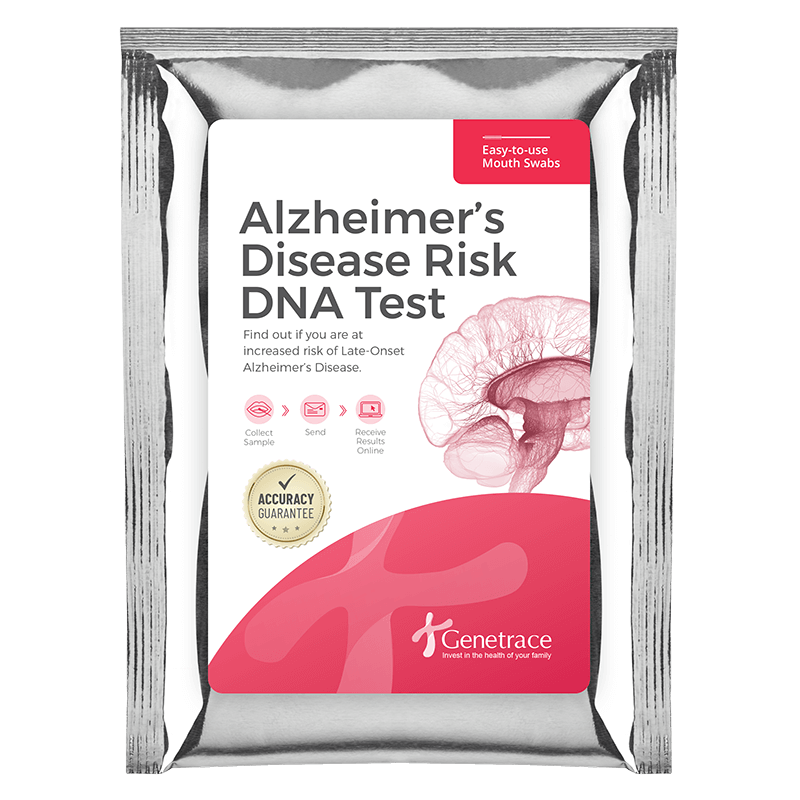

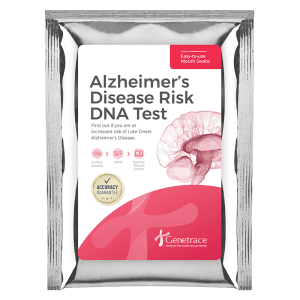

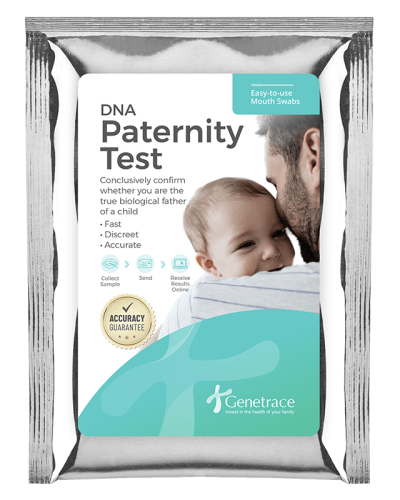

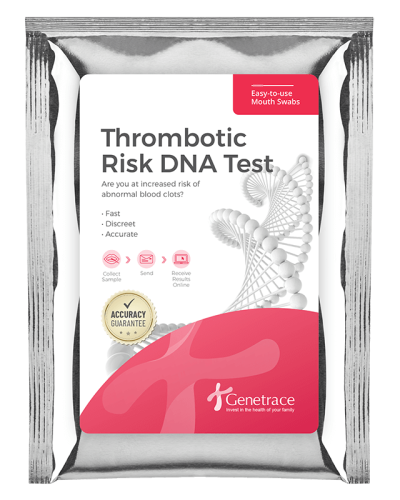

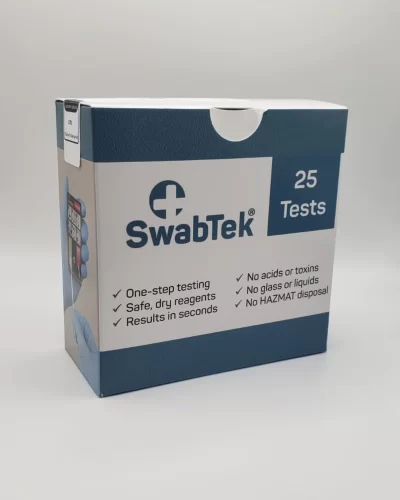
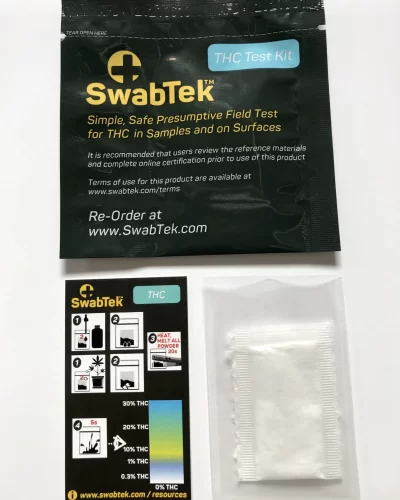
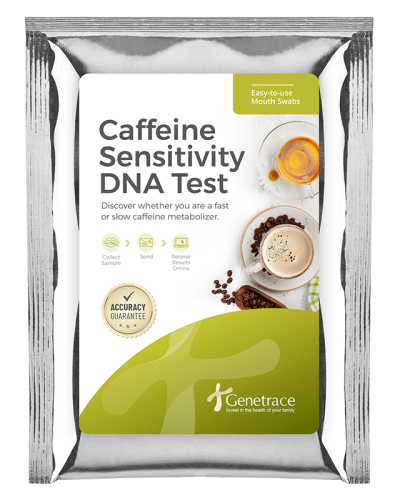

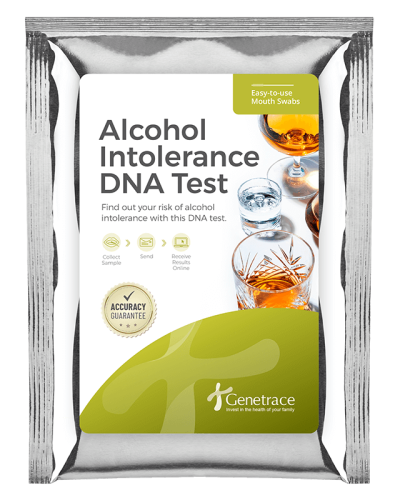
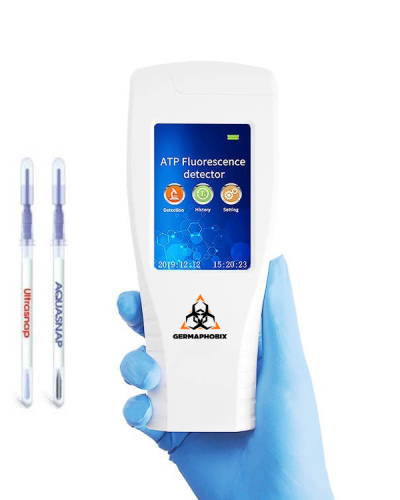
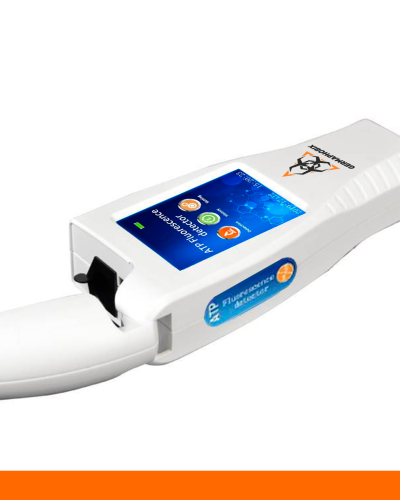
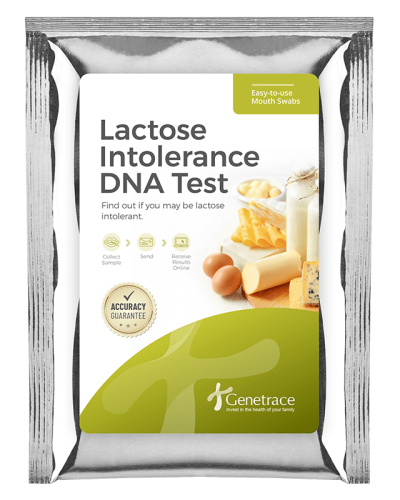
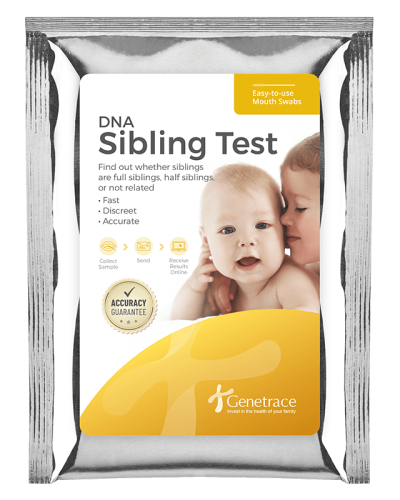
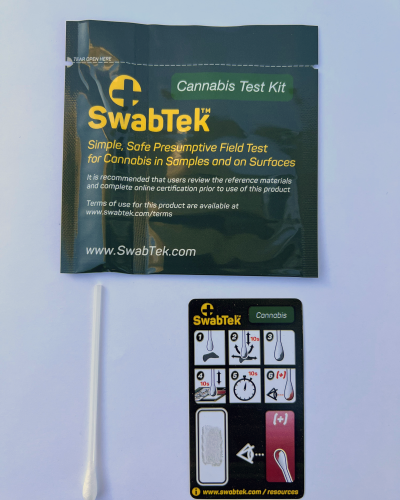
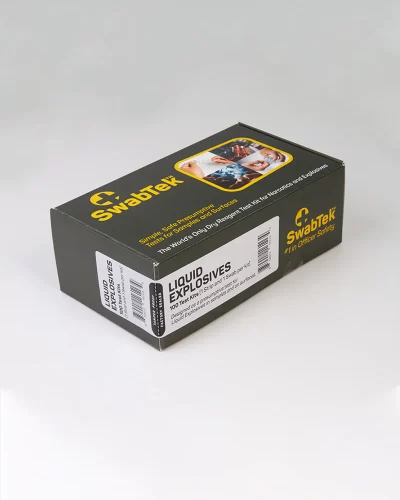
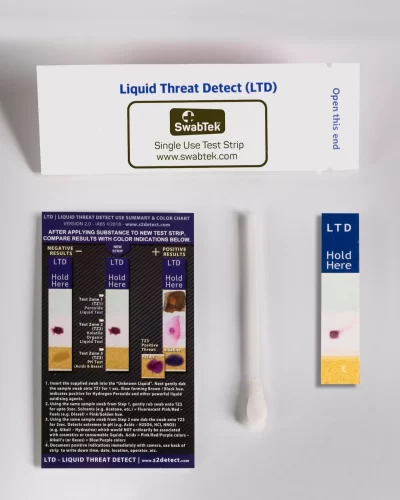
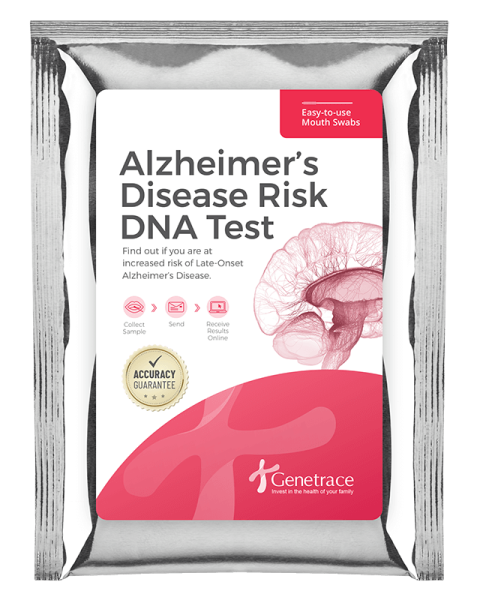

Helen S.
(verified owner)def recommend if ur looking for a dna test wasnt expecting them to reply so fast showed up earlier than tracking said!
Adrian L.
(verified owner)fast, simple and reliable. No complaints so nice and professional, 10/10 service got it in just a couple days
Cody J.
(verified owner)Was a bit skeptical but turned out great answered all my concerns, much appreciated fast and reliable shipping
Adam S.
(verified owner)Happy I tried it, was worth the money Super easy to talk to and very helpful well packaged and came fast
Jasmine T.
(verified owner)Easy process from start to finish Support team was super nice and quick to reply Super quick delivery, awesome service
Laura G.
(verified owner)Super easy to use and results came fast Support team was super nice and quick to reply shipped fast and came in great shape
Anna K.
(verified owner)Happy I tried it, was worth the money Super easy to talk to and very helpful well packaged and came fast
Ralph J.
(verified owner)Honestly way easier than I thought it would be they made the whole process smooth shipped fast, got it sooner than I thought
Emily F.
(verified owner)Good quality kit, instructions were clear Customer support was really patient with me Fast shipping, no complaints!
Courtney O.
(verified owner)Fast and accurate results, very impressed best customer service I’ve had in a while Shipping was perfect, arrived safe and sound
Donald D.
(verified owner)I’m very happy with the test kit and the speed of the results. The whole experience was very positive.
Andrew T.
(verified owner)I’m very happy with how easy it was to use the test kit. The results came back quickly and were accurate.
Teresa H.
(verified owner)This test kit made the whole process very easy. I received my results quickly, and they were exactly what I needed.
Walter A.
(verified owner)This test kit was exactly what I needed. It was quick, easy, and accurate.
Gabriel Z.
(verified owner)The test kit was simple and effective. I got the results quickly, and they were exactly what I needed.
Madison T.
(verified owner)The whole process was quick and efficient. I received the results faster than I thought, and they were very accurate.
Jose T.
(verified owner)This was such a convenient service. The test kit was easy to use, and the results were quick and accurate.
Kimberly H.
(verified owner)I was very happy with the test kit. It was easy to use, and the results came back faster than I thought.
Oliver F.
(verified owner)The test kit was straightforward and easy to use. The results were accurate, and I got them quickly.
Wendy S.
(verified owner)I’m very happy with the test kit. It was easy to follow, and the results were accurate.
Daniel X.
(verified owner)The test kit was very user-friendly, and the results came back quickly. I’m very happy with this service.
Larry O.
(verified owner)I’m very pleased with the test kit. It was easy to use, and the results were delivered quickly.
Chelsea C.
(verified owner)I was very happy with how fast the results came back from the test kit. It was a very simple process.
Sarah B.
(verified owner)This test kit was exactly what I needed. It was quick and easy to use, and the results were very clear.